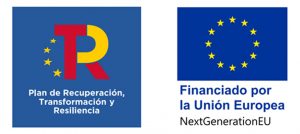SUCCESSBLADE
AMADE – UdG subproject: Polymerisation kinetics and material characterisation of a thermoplastic liquid resin for circular composite structures» (KINDCOMP)
Period: 12/2022 – 11/2024 (24 months)
Funding organization: European Union (Mecanismo de Recuperacion y Resilencia de la Unión Europea)
Partner 1: Spanish Council for Scientific Research (CSIC)

Partner 2: University of Girona (UdG)

Partner 3: The Centre for Energy, Environment and Technology Research (CIEMAT)

Principal Investigators of the AMADE – UdG subproject:
Josep Costa josep.costa@udg.edu (IP 1)
Daniel Trias daniel.trias@udg.edu (IP 2)
Other AMADE members involved:
Jose Manuel Guerrero, Daniela Rico, Mayerlin Salgado
Funding: Call funded by “Agencia Estatal de Investigación” and “Mecanismo de Recuperación y Resiliencia de la Unión Europea” under the project reference: TED2021-130201B-C32 /MCIN/ AEI / 10.13039/501100011033/ i por la Unión Europea “NextGenerationEU”/PRTR.


The European goal of decarbonising the energy sector will lead to a significant increase in renewable energy. The National Integrated Energy and Climate Plan predicts by 2030 that 74% of the energy generated will be from renewable sources, with wind energy being the majority source (more than 30% of installed renewable energy). However, one of the main problems in the wind sector is that the composite materials used in the manufacture of the blades cannot be recycled and end up landfilled or incinerated, with the consequent environmental impact in terms of waste or generation of emissions.
The main objective of the coordinated project SUCCESSBLADE is to develop new sustainable and 100% circular wind turbines by using a new low viscosity liquid thermoplastic resin, patented in the CSIC group, called Akelite. It is intended to recover by a simple, economical and environmentally friendly recycling procedure, both the fibers and the resin in optimal condition to manufacture a new wind turbine with good performance with 100% recyclable material. In addition, to improve the sustainability of the blades, it is intended to explore the replacement of fiberglass with natural flax fibers.
The use of the proposed materials will reduce the amount of waste from the dismantling of future wind farms, as wind blades will be 100% recycled. It will reduce the amount of raw materials used to build new blades as it will be done using recycled material (SDG-12, Sustainable Development Goals).
The main objective of the UdGirona subproject is the complete characterization of Akelite thermoplastics and composites resulting from their reinforcement with glass and flax fibers, as well as their structural application in the design of small size wind turbine blades (2 meters). Characterization includes the determination of mechanical properties (elastic, strength, toughness, viscoleastic, and damping), as well as the analysis of its polymerization kinetics by isoconversional methods. The characterization will be performed on the original material and on the resin resulting from the recycling to evaluate in detail its circularity. Likewise, the effect of the humidity on the dimensional changes and the degradation of properties of the studied composites will be studied. In any case, the composite material of epoxy matrix reinforced with fiberglass will be taken as benchmark material. The structural use of composite materials shall be carried out by designing, by means of optimization techniques, small wind turbine blades but including structural elements typical of larger blades and also quantitatively verifying the quality of the structural elements manufactured in the CIEMAT subproject, using computed tomography techniques and optical and electron microscopy.
The results of the subproject will allow the companies that manufacture wind turbine blades, Spain has main actors, to evaluate the capacity of the recyclable materials developed as substitutes for the materials they currently use. In addition, they will stimulate the European recycling industry and reduce the need to import raw materials, increasing the resilience of European industry.